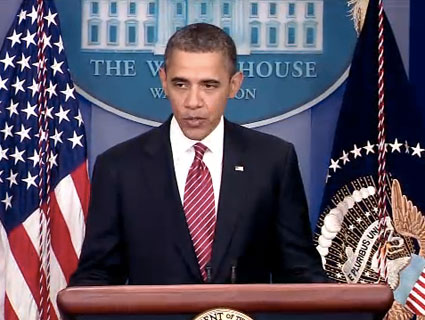
18percentgrey/<a href="http://www.shutterstock.com/cat.mhtml?lang=en&search_source=search_form&version=llv1&anyorall=all&safesearch=1&searchterm=prescription&search_group=&orient=&search_cat=&searchtermx=&photographer_name=&people_gender=&people_age=&people_ethnicity=&people_number=&commercial_ok=&color=&show_color_wheel=1#id=62078386&src=20c50db78bf4932c85c3135c8cdea739-1-2">Shutterstock</a>
In their latest move in the battle over contraception coverage, top Republicans in Congress are going for broke: They’re now pushing a bill that would allow employers and insurance companies to pick and choose which health benefits to provide based simply on executives’ personal moral beliefs. Sen. Mitch McConnell (R-Ky.), the top GOPer in the Senate, has already endorsed the proposal, and it could come to a vote this week. The measure would make the religious exemptions to President Barack Obama’s health care bill so large they’d swallow it whole.
“This is about gutting the Affordable Care Act and the protections it was meant to establish,” says Leila Abolfazli, a lawyer focusing at the National Women’s Law Center who focuses on health and reproductive rights.
Obama’s Affordable Care Act requires all health care plans to offer certain services and benefits, including birth control. Last week, Sen. Roy Blunt (R-Mo.) offered a “conscience amendment,” to the law, pitching it as a way to allay religious employers’ qualms about providing birth control to their employees.
But Blunt’s proposal doesn’t just apply to religious employers and birth control. Instead, it would allow any insurer or employer, religiously affiliated or otherwise, to opt out of providing any health care services required by federal law—everything from maternity care to screening for diabetes. Employers wouldn’t have to cite religious reasons for their decision; they could just say the treatment goes against their moral convictions. That exception could include almost anything—an employer could theoretically claim a “moral objection” to the cost of providing a given benefit. The bill would also allow employers to sue if state or federal regulators try to make them comply with the law.
If Republican leaders get their way and Blunt’s bill becomes law, a boss who regarded overweight people and smokers with moral disgust could exclude coverage of obesity and tobacco screening from his employees’ health plans. A Scientologist employer could deny its employees depression screening because Scientologists believe psychiatry is morally objectionable. A management team that thought HIV victims brought the disease upon themselves could excise HIV screening from its employees’ insurance coverage. Your boss’ personal prejudices, not science or medical expertise, would determine which procedures your insurance would cover for you and your kids.
“One of the fundamental purposes of the Affordable Care Act was making sure all health insurance plans cover basic services. The Blunt amendment would do away with that,” says Sarah Lipton-Lubet, a policy counsel with the American Civil Liberties Union. “A business could deny coverage for cervical cancer screening for unmarried employees, out of opposition to premarital sex.”
Although the Blunt amendment takes the conservative position on birth control coverage to its logical conclusion, conservatives have previously rejected the notion that religious belief entitles individuals to ignore the law. “To permit this would be to make the professed doctrines of religious belief superior to the law of the land, and in effect to permit every citizen to become a law unto himself,” Supreme Court Justice Antonin Scalia wrote in a 1990 decision involving Oregon men who sought an exemption to drug laws on the grounds that consuming peyote was part of their religion.
Blunt’s amendment isn’t just another far-out proposal. On Sunday, Bob Schieffer, the host of CBS’s Face the Nation, asked McConnell whether he was willing to support Blunt’s proposal.
“If we end up having to try to overcome the President’s opposition by legislation, of course, I’d be happy to support it and intend to support it,” McConnell said. Democrats intend to call McConnell’s bluff: According to a Democratic Senate aide, a vote on Blunt’s bill could come as early as this week.
You can read the section of Blunt’s bill that applies to employers below. Just click on the embedded document to read the whole bill:
Image: 18percentgrey/Shutterstock








